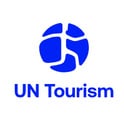New Academies in Collaboration with UN Tourism Planned for Zambia and Zimbabwe
UN Tourism has announced a major step forward in its work to grow education and skills development in Africa with the establishment of the first collaborative Academies in the region.


With African tourism experiencing significant growth, there is now an urgent need to train a wide range of skilled professionals, all equipped with the skills modern tourism businesses need. Reflecting this demand, UN Tourism has signed a Memorandum of Understanding with the Ministry of Tourism of Zambia to establish the ZITHS Mukuni International Academy for Tourism and Hospitality in collaboration with UN Tourism. The Academy will offer a range of courses, all focused on equipping students both new to the sector and establish tourism workers the skills they need to find work or advance in their careers.
Laying the foundation stone in Livingstone, Secretary-General Pololikashvili said: Africa’s tourism sector is growing and diversifying at a tremendous rate. These new Academies in Collaboration with UN Tourism will help train the tourism workers of tomorrow in a range of specialisms, giving African tourism the talent it needs to thrive.
Joining the Secretary-General in signing the agreement, the Minister of Tourism of Zambia, Rodney M. Sikumba, said: through the adoption of the UN Tourism Education Guidelines, Zambia has been able to reposition the role of education in tourism development. The establishment of the Academy is a game changer of how we will bridge the evident skills gap for the existing and future workforce of our tourism sector.
Culinary Arts Academy planned for Zimbabwe
UN Tourism has also agreed to establish the Africa International Tourism Academy for Culinary Arts in collaboration with UN Tourism. The specialist centre will be hosted in Victoria Falls, Zimbabwe and focus on training skilled professionals in culinary arts both within the country and right across Africa. The announcement coincides with the celebration of the first UN Tourism Gastronomy Tourism Forum for Africa, an event showcasing the region’s diverse gastronomy and set to bring together leading players from the public and private sectors.
We are excited to be working closely with UN Tourism to grow gastronomy tourism in our country and across the wider region. The new Academy in Collaboration with UN Tourism signals our shared commitment to empowering tourism workers within the field of culinary arts, putting Zimbabwe firmly on the global gastronomy map. Zimbabwe’s Tourism and Hospitality Industry Minister Barbara Rwodzi
Related Links:
About UN Tourism
The World Tourism Organization (UN Tourism) is the United Nations agency responsible for the promotion of responsible, sustainable and universally accessible tourism.
As the leading international organization in the field of tourism, UN Tourism promotes tourism as a driver of economic growth, inclusive development and environmental sustainability and offers leadership and support to the sector in advancing knowledge and tourism policies worldwide.
Our Priorities
Mainstreaming tourism in the global agenda: Advocating the value of tourism as a driver of socio-economic growth and development, its inclusion as a priority in national and international policies and the need to create a level playing field for the sector to develop and prosper.
Promoting sustainable tourism development: Supporting sustainable tourism policies and practices: policies which make optimal use of environmental resources, respect the socio-cultural authenticity of host communities and provide socio-economic benefits for all.
Fostering knowledge, education and capacity building: Supporting countries to assess and address their needs in education and training, as well as providing networks for knowledge creation and exchange.
Improving tourism competitiveness: Improving UN Tourism Members' competitiveness through knowledge creation and exchange, human resources development and the promotion of excellence in areas such as policy planning, statistics and market trends, sustainable tourism development, marketing and promotion, product development and risk and crisis management.
Advancing tourism's contribution to poverty reduction and development: Maximizing the contribution of tourism to poverty reduction and achieving the SDGs by making tourism work as a tool for development and promoting the inclusion of tourism in the development agenda.
Building partnerships: Engaging with the private sector, regional and local tourism organizations, academia and research institutions, civil society and the UN system to build a more sustainable, responsible and competitive tourism sector.
Our Structure
Members: An intergovernmental organization, UN Tourism has 160 Member States, 6 Associate Members, 2 Observers and over 500 Affiliate Members.
Organs: The General Assembly is the supreme organ of the Organization. The Executive Council take all measures, in consultation with the Secretary-General, for the implementation of the decisions and recommendations of the General Assembly and reports to the Assembly.
Secretariat: UN Tourism headquarters are based in Madrid, Spain. The Secretariat is led by the Secretary-General and organized into departments covering issues such as sustainability, education, tourism trends and marketing, sustainable development, statistics and the Tourism Satellite Account (TSA), destination management, ethics and risk and crisis management. The Technical Cooperation and Silk Road Department carries out development projects in over 100 countries worldwide, while the Regional Departments for Africa, the Americas, Asia and the Pacific, Europe and the Middle East serve as the link between UN Tourism and its 160 Member States. The Affiliate Members Department represents UN Tourism's 500 plus Affiliate members.
UN Tourism Communications Department
+34 91 567 8100
UN Tourism
